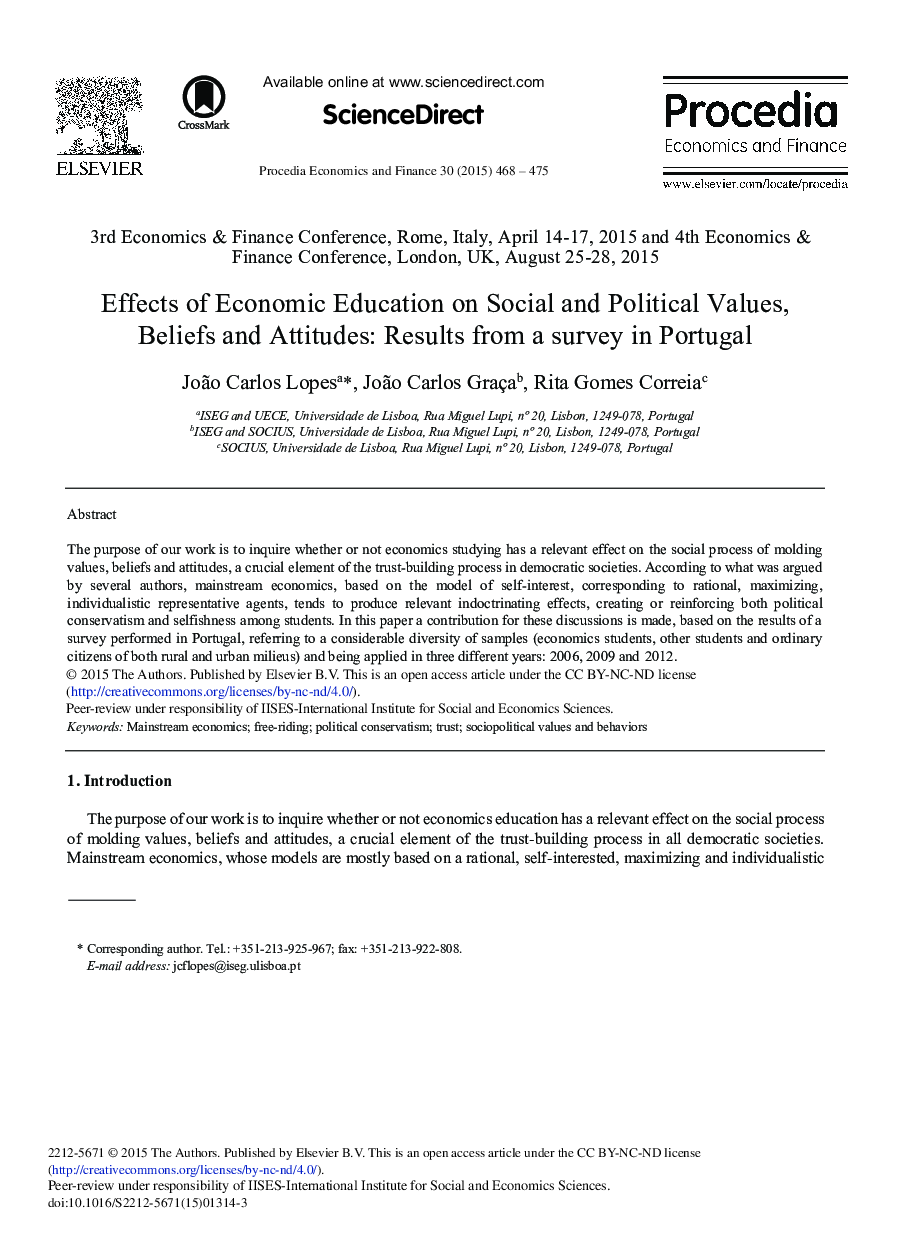| کد مقاله | کد نشریه | سال انتشار | مقاله انگلیسی | نسخه تمام متن |
|---|---|---|---|---|
| 981043 | 1480371 | 2015 | 8 صفحه PDF | دانلود رایگان |
The purpose of our work is to inquire whether or not economics studying has a relevant effect on the social process of molding values, beliefs and attitudes, a crucial element of the trust-building process in democratic societies. According to what was argued by several authors, mainstream economics, based on the model of self-interest, corresponding to rational, maximizing, individualistic representative agents, tends to produce relevant indoctrinating effects, creating or reinforcing both political conservatism and selfishness among students. In this paper a contribution for these discussions is made, based on the results of a survey performed in Portugal, referring to a considerable diversity of samples (economics students, other students and ordinary citizens of both rural and urban milieus) and being applied in three different years: 2006, 2009 and 2012.
Journal: Procedia Economics and Finance - Volume 30, 2015, Pages 468-475
